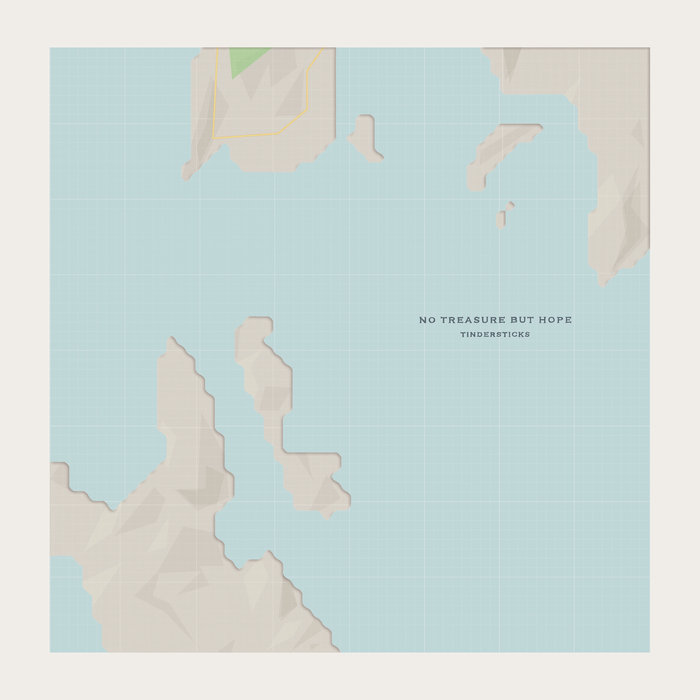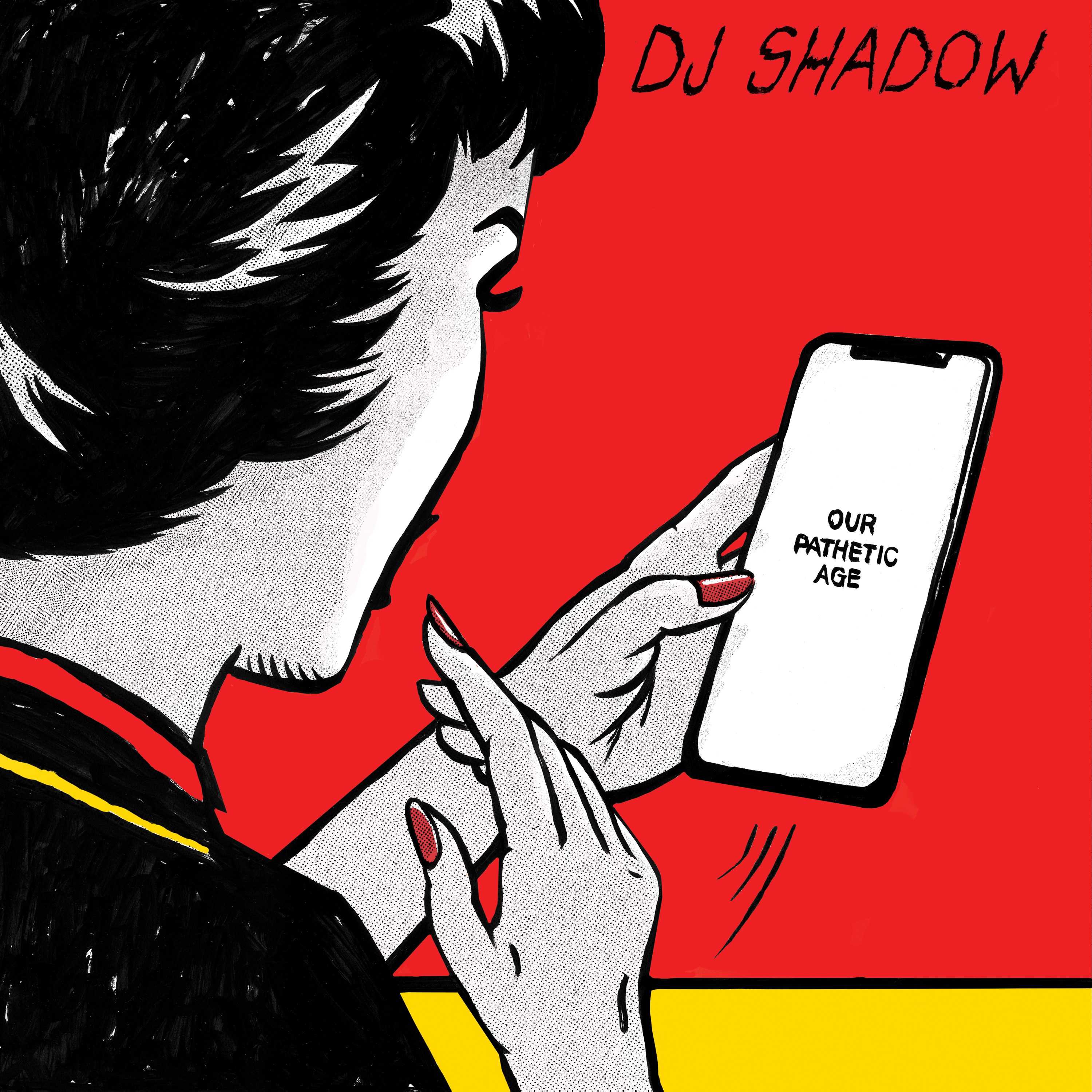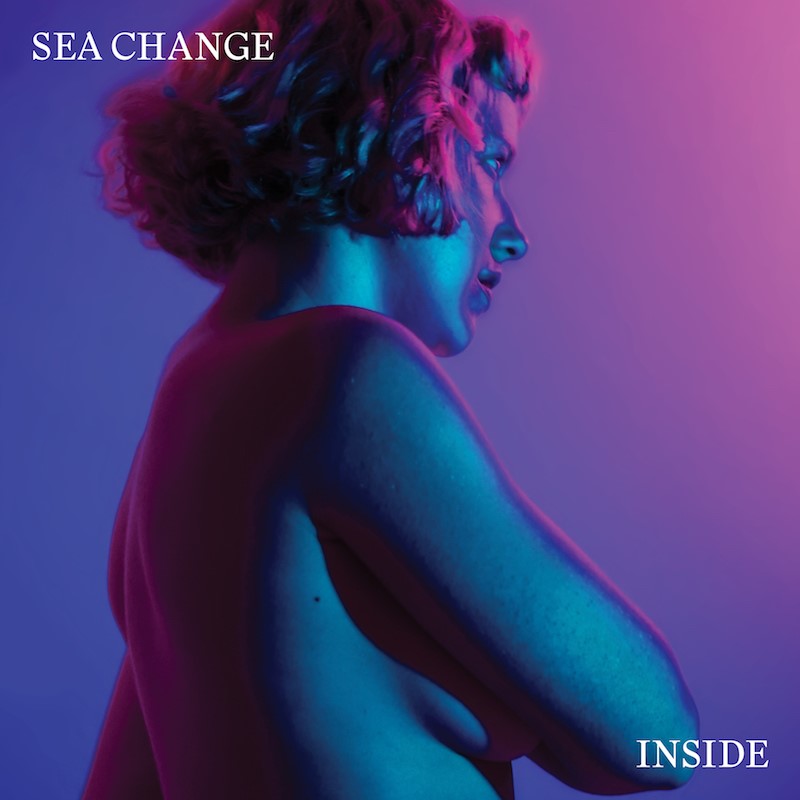Tindersticks – ‘No Treasure But Hope’
 Sounds like … the most hope- and beautiful we can expect from the eldermen of melancholy.
Sounds like … the most hope- and beautiful we can expect from the eldermen of melancholy.
Finally, Tindersticks gave in to write our inofficial NBHAP-record. That’s a joke, obviously. But in all seriousness, if you want to hear what Hope sounds like, look no further. I’m speaking real hope here, not the kind of blind, naive positivity, but the stubborn will to see the beauty where there’s „no love on the streets / only fear in our hearts“. Tindersticks are THE reliable force for musically expressing that hope. Stuart A. Staples’ introspection and longing clamouring were there, 30 years ago, when no one even dared to corner toxic masculinity in lines like „tears are falling into our beer“. And he and his Tindersticks are still with us today. Whereas the last few records and soundtrack works by Staples stressed his sophisticated styles, No Treasure But Hope ensures that Tindersticks foremost write music to connect with on a direct emotional level. As a result, it is, aptly, probably the most hopeful sounding Tindersticks album ever recorded.
The Amputees f.e. is possibly the most uplifting song about lost extremities since Frightened Rabbit‘s Modern Leper. Of course there’s also still the Tough Love that’s always been at the centre of Tindersticks-songs. And however strongly beauty is something these songs strive for, in the end, of course „it’s the beauty that’s killing me“. But then there’s also Pinky in the Daylight: A waltzing love song with no second layer. No constraint, no second guessing. It’s songs like this one in which the typical Tindersticks chamber pop leaves the solitude of their small, poorly ventilated attic and opens up as many windows as possible; subtle piano arrangements turning into broader pictures with swelling brass sections and a Stuart A. Staples getting so very close to us – „the trick is the escaping“, indeed. (Henning Grabow)
Stream Now: ► Spotify / ► Apple Music / ► TIDAL
DJ Shadow – ‘Our Pathetic Age’
 Sounds like … a unification of ‘90s electro and 21st century beat-making.
Sounds like … a unification of ‘90s electro and 21st century beat-making.
Joshua Paul Davis’ desire hasn’t stopped. His sixth studio album Our Pathetic Age (and 22nd album counting in live, remix, compilation and mix albums) released through Mass Appeal Records is a double record which chronicles the journey of Davis’ equal passion for electronic and hip-hop sounds throughout his life. After the Endtroduction of DJ Shadow into the world, he has proven again and again that the formula of fine exploration, reliable features and trust in one’s own creative process is a stable foundation to build his unique sound. With the ambition to create a snapshot of living in the here and now, Davis has grounded his vision in the peculiar balance of ‘where we came from and where we’re going’.
The first eleven tracks are instrumental dives into different directions from Juggernaut’s oldschool techno to the ambient piano composition of Firestorm as well as the upbeat vibes of Rosie, the second single of the record and accompanied by a literal magnetic video which long-time collaborator Ben Stokes visualised. The second half of the album delivers with features of the big names such as Organized Konfusion’s Pharaohe Monch, Nas, Run The Jewels, and rising soul singer Fantastic Negrito. Most remarkable is Rocket Fuel where DJ Shadow’s production skills let De La Soul’s ‘90s revival rap shine. As a whole, the record takes its listeners by the hand, stopping at each of the devastating and beautiful sights life brings with itself, not only nodding respect to the past but of the potentials of the future. Davis does not forget that pathos needs vulnerability first to rise and venture on. (Anna-Katharina Stich)
Stream Now: ► Spotify / ► Apple Music / ► TIDAL
Bonnie ‘Prince’ Billy – ‘I Made A Place’
 Sounds like … a stubborn, proud anachronism that in all its wisdom still manages to resonate on a very deep level.
Sounds like … a stubborn, proud anachronism that in all its wisdom still manages to resonate on a very deep level.
Yeah, probably he’s an anachronism by now; 20 years after I See A Darkness entirely changed the way folk music could be crafted. Back then, Will Oldham aka Bonnie ‘Prince’ Billy actually managed what an entire genre of daft, Mumford&Sons-isized epigones nearly made us all forget: That it’s possible to create something like new traditionals. Immortal songs. dressed in folk. Well, Oldham nowadays would probably only reply by singing „look forward to your past“. And in the end his music is still what it’s been back then: It’s a retreat. A shelter for the wicked, the outdated, those too slow for capitalistic growth and ever changing pop cultural demandings. And in that, he is still a master. I Made A Place is a stubborn offering born of what Oldham himself described as such: I tried holding my breath, waiting for the storm to pass, but this storm is here to stay and its devastation is our new landscape. He’s referring to the music business. And often we, mindlessly consuming as much as there is, tend to forget what these changes might bring for those depending on it. There’s a lot of talking about sleep, dreaming and getting rest throughout these 13 entirely new songs that stress a certain general fatigue – but what these songs also always offer is a warm embrace to those in need of it.
I Made A Place starts out with as much carelessness as possible: New Memory Box celebrates being the anachronistic, uplifting bluegrass tune that it is: „No more to be lonely/No more to feel small/A quiet life might be/The way through it all/Quietly raging, quietly wild”. Dream Awhile then again is another testament of Oldham‘s talent for finding haunting duet voices. Back in 2011, when the last ‘Prince’-record Wolfroy Goes To Town came out, I got to hear the voice of Angel Olsen for the first time. Now, Dream Awhile is that moment of beautiful togetherness. A song as tender as it can get, with Oldham singing „My lady has my back, she sings that everything’s all right/So we lay down and sleep and dream and spoon each other tight“. As the album proceeds, the songs grow more tentatively and lagging, leaving the impression that yes, these songs didn’t come that easy to Oldham. But still he gave them to us. He ensures us that „this is far from over“ and we should be thankful for that. (Henning Grabow)
Stream Now: ► The entire album isn’t available on digital streaming services yet but you can purchase it physically via Bandcamp now.
Pumarosa – ‘Devastation’
 Sounds like … a bewitching reinvention of one of Britain’s most fascinating new bands.
Sounds like … a bewitching reinvention of one of Britain’s most fascinating new bands.
When British band Pumarosa first landed on my musical map back in 2017 with their debut album The Witch I was instantly fascinated by their energy and the profound songwriting they provided. It was one of the year’s most intense albums and they were also a highly enjoyable live affair. The follow-up however is a pretty different yet also quite fascinating affair. It was shaped by the aftermath of The Witch in which singer Isabel Muñoz-Newsome was diagnosed with cervical cancer. The treatment and recovery took a bit time but also changed her perspective towards her body and her songwriting. And later on bassist Henry also left the group, forcing Pumarosa to rethink their band and start from scratch. On Devastation we witness a different group and a different sound. It’s less guitar-focussed, more electronic and feels a bit warmer and more laid back in general. The trippy and psychedelic character remains and Muñoz-Newsome’s bewitching character plays a crucial part here. Fall Apart is a fitting way to start the album. Trippy breakbeats and a more reduced set-up greet the listener, already setting up the mood for what’s about to follow.
On Devastation Pumarosa give their psychedelic pop a bit more space to breathe. Riding on percussive beats, tender piano moments and gentle electronic experiments the four-piece unravels a hypnotic flow where the single tracks blend into each other to create one big picture. Sometimes things get a bit more poppier like on Lose Control or the optimistic Heaven with its references to early 90s dance pop. Sometimes it’s get dark and trippy like on Factory and I Can Change. And even the heavy guitars of their debut tend to make a comeback on a song like Into The Woods. But they play a minor part on Devastation. It’s less in-your-face, more sensual, more trippy and hypnotizing. Like the progressive lovechild between Kate Bush and Portishead the band seeks for a unique musical environment, one that continues to grow with each release as it seems. Pumarosa might sound a bit different in 2019 but that only makes their musical journey more interesting. I heavily advice you to fall for this spell. (Norman Fleischer)
Stream Now: ► Spotify / ► Apple Music / ► TIDAL
Sea Change – ‘Inside’
 Sounds like … clubbing-inspired immersement electronica.
Sounds like … clubbing-inspired immersement electronica.
Unconscious communication is the undercurrent of communication, our way of imparting information to each other without even realising it, a non-intellectual channel of conversation. The unconscious mind is generally thought to be the source of our deeper emotions, lust, anger, aggression, joy, which then float up to the conscious mind and are sharpened into thoughts and expressions. Clubbing, a world Norwegian artist Ellen Sunde, aka Sea Change, stepped seriously into after moving to Berlin, prompted her music to move more into this arena. “When I made this record I tried to channel the same state of mind I have when I go clubbing,” she says of new album Inside. “Not overthinking everything, like I usually do, but instead embracing my impulses; working intuitively, almost anti-intellectual. I learned that that’s where I am able to get to the core of what I need to express and that I just had to trust those decisions”.
All that feels appropriate, as Inside is an album that plugs itself into the deepest part of your brain. Clubbing at its best is when all input channels merge into one continuous flow, lights, sounds and movements all melting into a current the clubber immerses themselves into. Although a recorded piece of music obviously only has one of those elements to work with, Inside functions in a similar way. From the abstract opening title track, the album flows as one sonic journey, a carefully-sculpted trip through peaks and falls, tempos and tensions in contact flux, winding around each other in interplay. Picking out individual moments or tracks feels like trying to chop the ocean into tide ponds. It’s an album to immerse yourself into, and to let yourself sync with its tides and currents. (Austin Maloney)
Stream Now: ► Spotify / ► Apple Music / ► TIDAL


